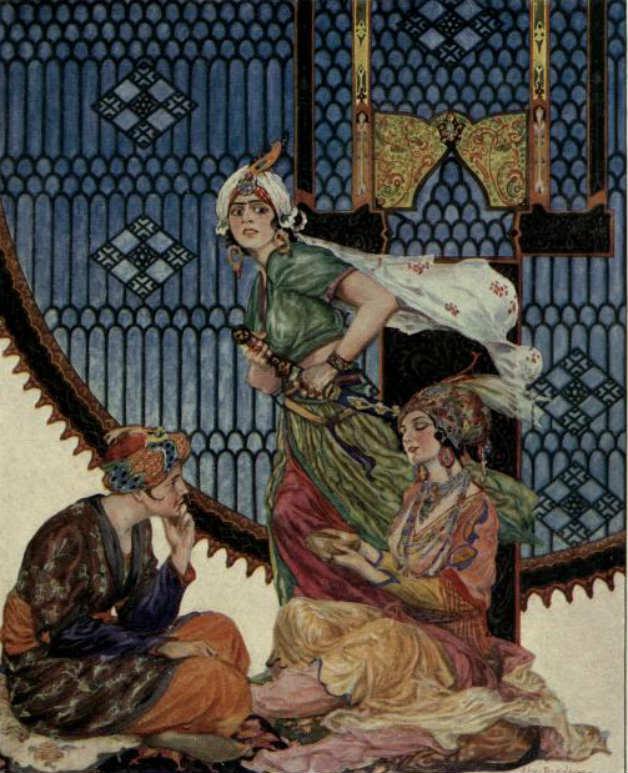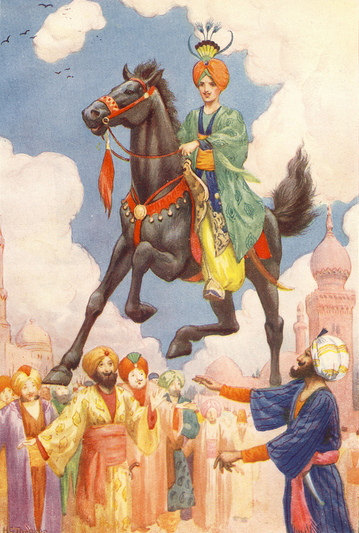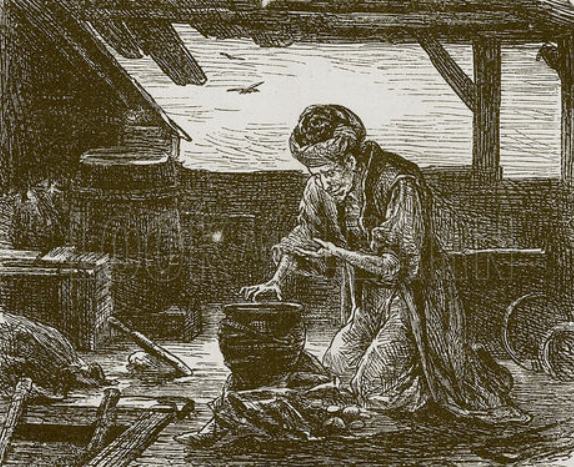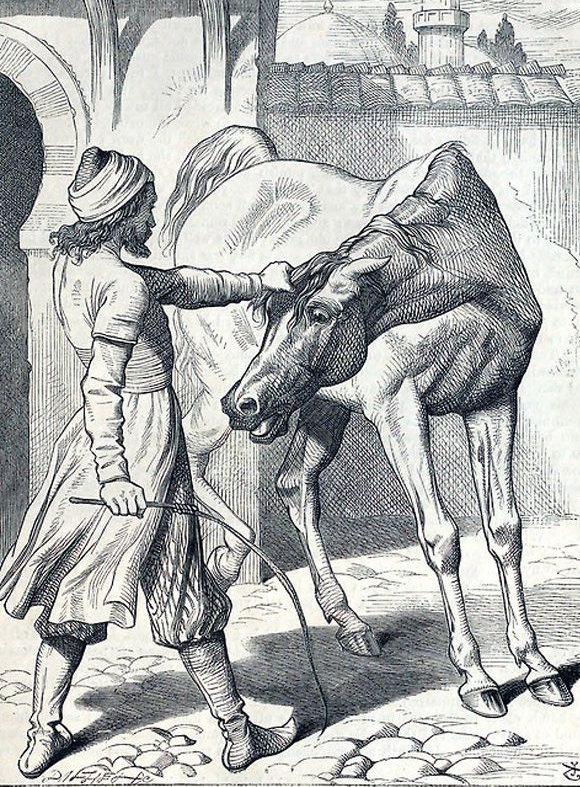34.The Story of Two Sisters Who Were Jealous of Their Younger Sister
Once upon a time there reigned over Persia a Sultan named Kosrouschah, who from his boyhood had been fond of putting on a disguise and seeking adventures in all parts of the city, accompanied by one of his officers, disguised like himself. And no sooner was his father buried and the ceremonies over that marked his accession to the throne, than the young man hastened to throw off his robes of state, and calling to his vizir to make ready likewise, stole out in the simple dress of a private citizen into the less known streets of the capital.
Passing down a lonely street, the Sultan heard women’s voices in loud discussion; and peeping through a crack in the door, he saw three sisters, sitting on a sofa in a large hall, talking in a very lively and earnest manner. Judging from the few words that reached his ear, they were each explaining what sort of men they wished to marry.
“I ask nothing better,” cried the eldest, “than to have the Sultan’s baker for a husband. Think of being able to eat as much as one wanted, of that delicious bread that is baked for his Highness alone! Let us see if your wish is as good as mine.”
“I,” replied the second sister, “should be quite content with the Sultan’s head cook. What delicate stews I should feast upon! And, as I am persuaded that the Sultan’s bread is used all through the palace, I should have that into the bargain. You see, my dear sister, my taste is as good as yours.”
It was now the turn of the youngest sister, who was by far the most beautiful of the three, and had, besides, more sense than the other two. “As for me,” she said, “I should take a higher flight; and if we are to wish for husbands, nothing less than the Sultan himself will do for me.”
33.The Enchanted Horse
It was the Feast of the New Year, the oldest and most splendid of all the feasts in the Kingdom of Persia, and the day had been spent by the king in the city of Schiraz, taking part in the magnificent spectacles prepared by his subjects to do honor to the festival. The sun was setting, and the monarch was about to give his court the signal to retire, when suddenly an Indian appeared before his throne, leading a horse richly harnessed, and looking in every respect exactly likes a real one.
“Sire,” said he, prostrating himself as he spoke, “although I make my appearance so late before your Highness, I can confidently assure you that none of the wonders you have seen during the day can be compared to this horse, if you will deign to cast your eyes upon him.” ******
32.The Story of Ali Cogia, Merchant of Baghdad
In the reign of Haroun-al-Raschid, there lived in Baghdad a merchant named Ali Cogia, who, having neither wife nor child, contented himself with the modest profits produced by his trade. He had spent some years quite happily in the house his father had left him, when three nights running he dreamed that an old man had appeared to him, and reproached him for having neglected the duty of a good Mussulman, in delaying so long his pilgrimage to Mecca.
Ali Cogia was much troubled by this dream, as he was unwilling to give up his shop, and lose all his customers. He had shut his eyes for some time to the necessity of performing this pilgrimage, and tried to atone to his conscience by an extra number of good works, but the dream seemed to him a direct warning, and he resolved to put the journey off no longer.*****
31.The Story of Sidi-Nouman
The Caliph, Haroun-al-Raschid, was much pleased with the tale of the blind man and the dervish, and when it was finished he turned to the young man who had ill-treated his horse, and inquired his name also. The young man replied that he was called Sidi-Nouman.
“Sidi-Nouman,” observed the Caliph, “I have seen horses broken all my life long, and have even broken them myself, but I have never seen any horse broken in such a barbarous manner as by you yesterday. Everyone who looked on was indignant, and blamed you loudly. As for myself, I was so angry that I was very nearly disclosing who I was, and putting a stop to it at once. Still, you have not the air of a cruel man, and I would gladly believe that you did not act in this way without some reason. As I am told that it was not the first time and indeed that every day you are to be seen flogging and spurring your horse, I wish to come to the bottom of the matter. But tell me the whole truth, and conceal nothing.” *****





